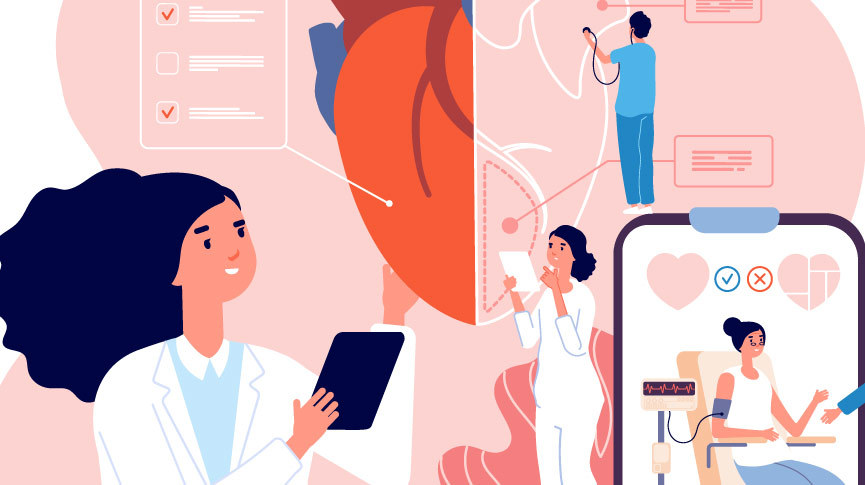Why Staying Heart Healthy After Menopause is so Important

As you cast your eye toward the next stage of your life, you’re ready to face it head-on. You’re on schedule with your mammograms, your pelvic floor exercise form is on point—so bring it on menopause!
But have you thought about your heart disease risk? Heart disease is the leading cause of death for women in the United States, accounting for 1 in 6 deaths in 2017. Here’s what you may not know about your heart disease risk, which increases once you begin menopause.
What is Your Heart Disease Risk?
The Difference Menopause Makes
Let’s be clear: menopause doesn’t cause heart disease. But the changes happening in your body (as well as other lifestyle factors catching up with you) make menopause a perfect store for elevated heart disease risk.
Estrogen is believed to have a positive effect on the inner layer of the artery wall by helping keep your blood vessels flexible so they can relax and expand to accommodate blood flow.
The decrease in naturally-produced estrogen when you hit menopause is then thought to be one reason for the increased risk. (Despite the benefits of estrogen, the American Heart Association does not recommend using postmenopausal hormone therapy in the hopes of reducing your risk of heart disease or stroke because studies just haven’t shown it to be effective.)
It is also common for people who have had normal cholesterol readings their entire life to suddenly have higher levels of LDL (bad cholesterol) at this stage of life. This has to do with shifting hormones but also is impacted by the weight gain and increasingly sedentary lifestyle that many people have post-menopause. (Menopause doesn’t make you sedentary, but it does tend to happen close to retirement age!).
Therefore, it’s important to keep track of your cholesterol during perimenopause and after menopause.
Factoring in Family History & Background
Besides age, there are other factors that are beyond our control, such as family history and race. If you’re South Asian, you are at a higher risk of developing coronary heart disease. If you have African or Native American heritage, you’re more likely to develop high blood pressure and suffer a stroke.
Additionally, if your parents have heart disease, you are more likely to develop it as you age.
Take a Look at Your Lifestyle
Some of the major risks for heart disease that you can control include smoking tobacco, high cholesterol and high blood pressure. Inactivity and being overweight can also pose risks for your heart health, as can too much stress and alcohol.
But, if you’re concerned about how your weight or drinking habits may impact your heart health, please speak with your doctor. Frequent, extreme changes to your diet, as well as attempting to ‘cold-turkey’ your drinking can both have extremely serious (sometimes deadly) outcomes.
Letting your doctor know what’s going on (as difficult as it can be sometimes) helps you make lifestyle changes safely.
A Note on How Your Heart Attack Symptoms May Look Different
When we think of heart attacks, we often think of numbness in arms and intense chest pains, but your heart attack symptoms might look a little different. Chest pain and shortness of breath are common for everyone to experience when having a heart attack, but you are slightly more likely to experience back or jaw pain, nausea and tiredness.
How to Stay Heart Healthy
Early awareness of your rising risk is the best way to stay ahead of the curve with your heart health! That means finally kicking that smoking habit and making physical activity part of your regular routine.
You should be shooting for 150 moderate-intensity aerobic activity or 75 minutes of vigorous activity a week (or a combo of both) plus at least two days of light strength training a week. And no, that doesn’t mean having a very intense Saturday every week!
You can spread a few activities throughout—fast walking, aerobics, hiking, swimming and biking are all activities that get your heart rate up.
Even intense gardening like raking leaves counts! You can find out more about activities that help keep your heart healthy from your government health authority, like the CDC.

Lane Baumeister is an internationally-based Canadian writer with several years’ experience creating educational and entertaining articles that discuss intimate health and sexual well-being. When not waxing profound about menstruation, she devotes herself to enjoying extremely good food and equally bad movies.


